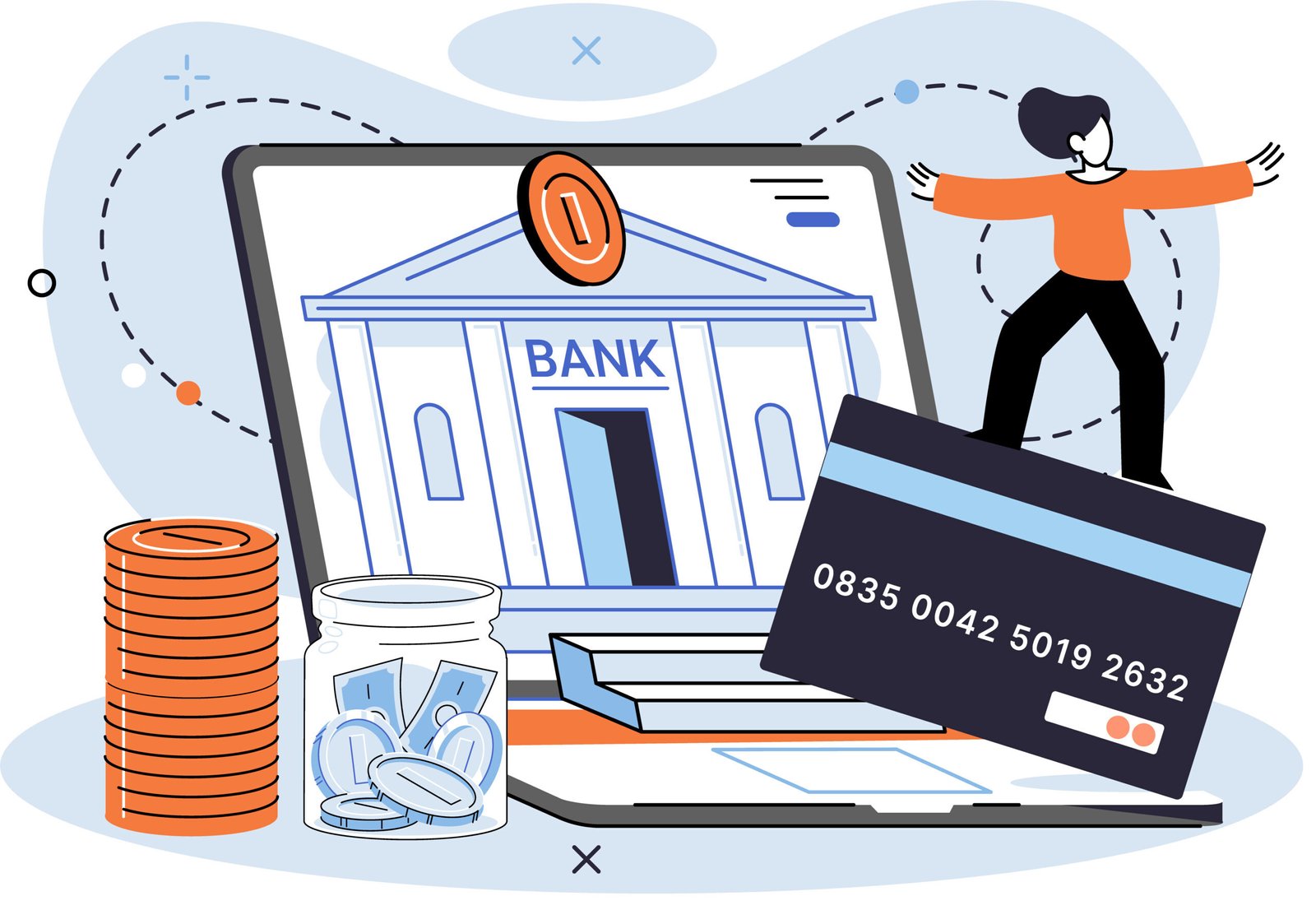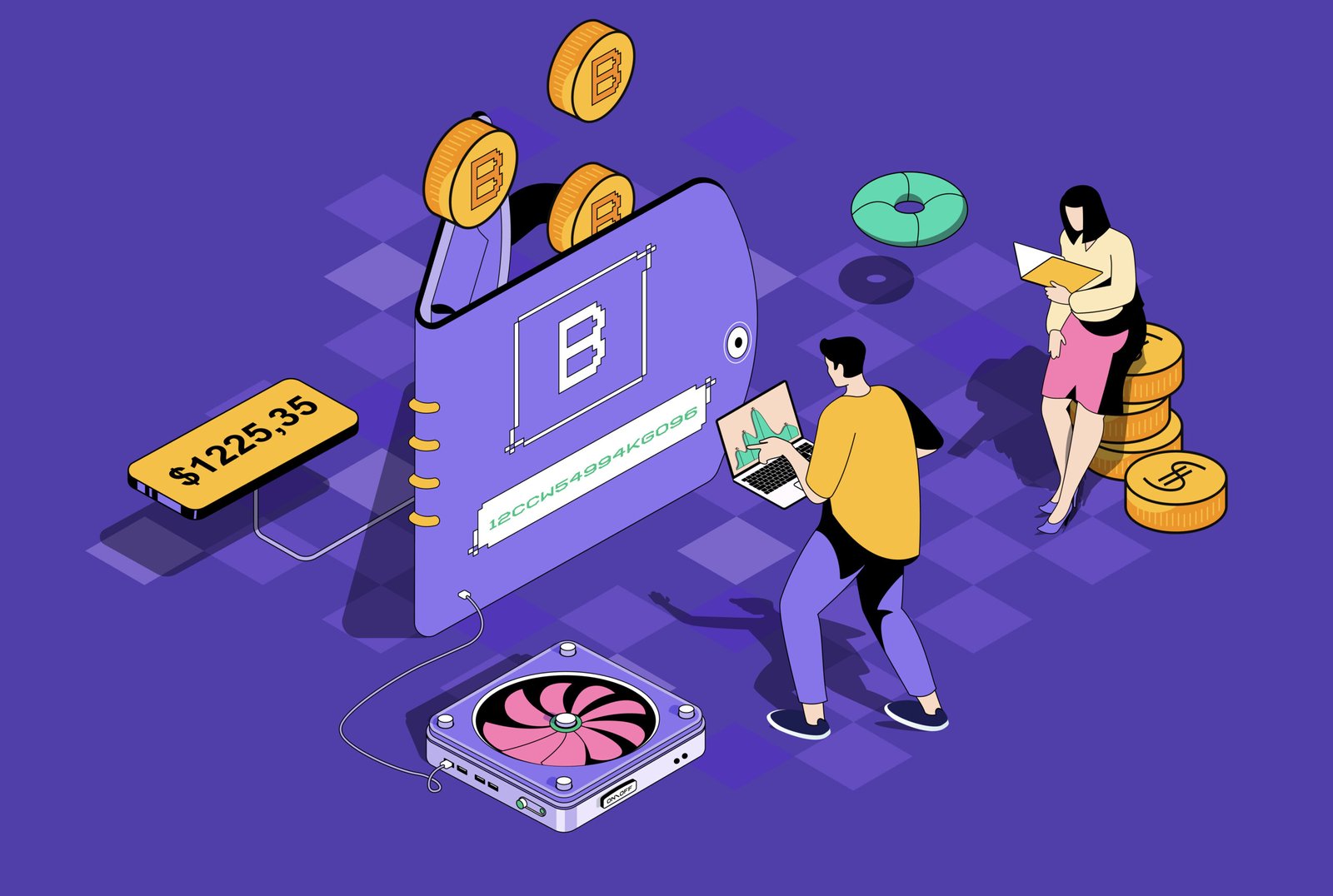Crypto Wallets vs. Bank Accounts: Which Is Safer for Your Money?
In the contemporary financial landscape, individuals have more options than ever before when it comes to storing and managing their money. Two prominent choices are traditional bank accounts and cryptocurrency wallets. Each comes with its unique set of advantages, security features, and risks. To determine which is safer for your money, it is essential to delve into the details of how both systems operate, their security measures, and the potential threats they face.
Traditional Bank Accounts

Overview: Traditional bank accounts are financial accounts maintained by banking institutions. These accounts can be accessed through branches, ATMs, online banking platforms, and mobile apps. Banks offer various types of accounts, such as checking accounts, savings accounts, and fixed deposits, each serving different financial needs.
Security Measures:
- Regulation and Insurance: Government authorities heavily regulate banks and require them to follow strict security protocols. In many countries, deposits in bank accounts are insured by government-backed insurance schemes. For instance, the Federal Deposit Insurance Corporation (FDIC) in the United States insures deposits up to $250,000 per depositor per bank.
- Encryption and Fraud Detection: Banks use advanced encryption techniques to protect online and mobile banking transactions. They also employ sophisticated fraud detection systems that monitor transactions for suspicious activity, helping to prevent unauthorized access and fraud.
- Two-Factor Authentication (2FA): Most banks offer two-factor authentication for online banking. This means that even if someone obtains your password, they would still need a second form of verification, such as a code sent to your phone, to access your account.
- Physical Security: Bank funds are stored in secure vaults and protected by robust physical security measures. In addition, banks have disaster recovery plans to protect their operations and your money in the event of a natural disaster or other emergencies.
Risks:
- Cyber Attacks: Despite robust security measures, banks are not immune to cyber-attacks. Hackers continually evolve their methods to breach security systems, potentially leading to data breaches and financial losses.
- Bank Failures: Although rare, banks can fail due to mismanagement or economic crises. While deposit insurance provides some protection, there may be delays in accessing funds or limits on the amount that can be recovered.
- Identity Theft: Personal information stored by banks can be a target for identity thieves. If your identity is stolen, it can lead to significant financial and personal distress.
Cryptocurrency Wallets

Overview: Cryptocurrency wallets are digital tools that allow users to store, send, and receive cryptocurrencies like Bitcoin, Ethereum, and many others. Unlike traditional bank accounts, cryptocurrency wallets are not held by a central institution but by individuals, providing a level of decentralization.
Types of Wallets:
- Hot Wallets: Hot wallets are connected to the internet and can be accessed online through computers or mobile devices. Examples include exchange wallets and web wallets.
- Cold Wallets: Cold wallets are offline storage solutions, such as hardware wallets and paper wallets. They are not connected to the internet, making them less vulnerable to cyber attacks.
Security Measures:
- Decentralization: Since cryptocurrencies operate on decentralized networks (blockchains), they are not controlled by any single entity. This reduces the risk of centralized points of failure and makes it harder for large-scale attacks to succeed.
- Encryption: Cryptocurrency wallets use encryption to secure private keys, which are required to access and transfer funds. The strength of this encryption is a critical factor in the security of the wallet.
- Private Keys: Access to cryptocurrency is controlled through private keys. Only individuals with access to these keys can authorize transactions. Cold wallets, which store private keys offline, offer enhanced security against hacking.
- Multisignature (Multisig): Some wallets offer multisignature capabilities, requiring multiple parties to sign off on a transaction before it can be executed. This adds an extra layer of security, especially for large transactions or institutional use.
Risks:
- Loss of Private Keys: If you lose access to your private keys, you lose access to your cryptocurrency. Unlike banks, there is no central authority that can help recover lost keys or funds.
- Cyber Attacks on Hot Wallets: Hot wallets are vulnerable to hacking. If a hacker gains access to your hot wallet, they can potentially drain your funds. Therefore, it is crucial to use hot wallets with solid security measures and only keep small amounts of cryptocurrency in them.
- Phishing and Scams: Phishing attacks and scams are prevalent in the cryptocurrency space. Unsuspecting users may be tricked into revealing their private keys or sending funds to fraudulent addresses.
Comparison: Crypto Wallets vs. Bank Accounts
Accessibility and Convenience:
- Bank Accounts: Bank accounts offer high levels of convenience with easy access through ATMs, online banking, and mobile apps. They also provide a range of financial services, including loans, credit cards, and investment products.
- Crypto Wallets: Cryptocurrency wallets offer the advantage of being accessible worldwide without the need for a central authority. However, they require a certain level of technical knowledge and understanding of digital security practices.
Control and Ownership:
- Bank Accounts: Money in a bank account is technically under the control of the bank. While you have access to your funds, the bank can impose restrictions, freeze accounts, or limit withdrawals.
- Crypto Wallets: With cryptocurrency wallets, you have complete control over your funds. There are no intermediaries, and you can make transactions without third-party approval. However, this also means that you are solely responsible for securing your assets.
Security and Risks:
- Bank Accounts: Traditional bank accounts benefit from regulatory oversight, deposit insurance, and robust security measures. However, they are not immune to cyber-attacks, bank failures, and identity theft.
- Crypto Wallets: Cryptocurrency wallets, especially cold wallets, offer high levels of security against hacking. However, they come with risks, such as the loss of private keys and susceptibility to scams. The decentralized nature of cryptocurrencies means there is no recourse for recovering lost or stolen funds.
Conclusion
Determining whether a crypto wallet or a bank account is safer for your money depends on your specific needs, risk tolerance, and understanding of each system. Traditional bank accounts offer convenience, regulatory protections, and a wide range of financial services, making them a secure choice for many. On the other hand, cryptocurrency wallets provide greater control over your funds and enhanced security features, mainly when using cold storage. Still, they require a higher level of personal responsibility and technical knowledge.
For those who prioritize security and control over their assets and are willing to take on the responsibility of managing private keys, cryptocurrency wallets, especially cold wallets, can be a secure option. Conversely, individuals who value convenience, regulatory protection, and access to a variety of financial services may find traditional bank accounts to be a safer choice. Ultimately, a balanced approach that incorporates both traditional and digital financial solutions may offer the best of both worlds, providing security, convenience, and control.


















Pretty nice post. I simply stumbled upon your weblog and wished to say that I have truly loved surfing around your weblog posts. In any case I will be subscribing on your feed and I hope you write once more very soon!